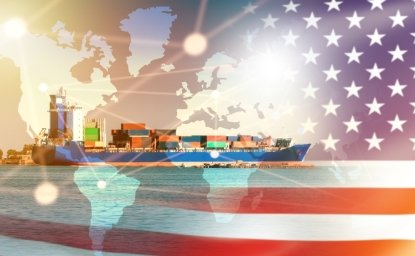#156 Latin America's Export Growth Imperative in the 1980s: Can the United States Help Achieve It?

By Winston Fritsch
From the Introduction
Fritsch's paper focuses on two sets of issues that he saw as central in Latin America's agenda for trade negotiations in the 1980s and 1990s. The first stems from the need to reverse the slump in the region's exports. At contemporary interest-rate levels and the prevailing bearish atmosphere in world financial markets, the large foreign debt accumulated by most Latin American nations in the process of external adjustment to the great international instability of the 1970s is a formidable problem. It can be borne, he writes without excessive pressure on domestic economic activity and import levels only if the high export growth rates attained by these countries in the past 15 years are restored and sustained.
However, the author predicts, when the present recession abates, the structural trade policy issues which have marked United States-Latin American bilateral trade negotiations will again come to the fore. This second set of questions can be broadly divided into two main areas of contention. On the one hand, there are longstanding questions concerning trade in primary goods, especially the United States role in a collective effort to alleviate the painful effects inflicted on most of its southern neighbors by the wide and frequent fluctuations in primary commodity prices. On the other hand, there are also issues related to the effects of United States trade policy on Latin American exports. Of particular relevance in this context is the problem of how to prevent United States trade restrictions from cutting short the region's increasing trade diversification toward manufactured exports. This is a central issue in a longer run view of United States-Latin American trade relations, and much ultimately will depend upon the former's ability to adjust to a changing international division of labor which relocates an increasing--and presently sizeable-share of high~productivity world industrial capacity to former Latin American primary product exporters.

Latin America Program
The Wilson Center’s prestigious Latin America Program provides non-partisan expertise to a broad community of decision makers in the United States and Latin America on critical policy issues facing the Hemisphere. The Program provides insightful and actionable research for policymakers, private sector leaders, journalists, and public intellectuals in the United States and Latin America. To bridge the gap between scholarship and policy action, it fosters new inquiry, sponsors high-level public and private meetings among multiple stakeholders, and explores policy options to improve outcomes for citizens throughout the Americas. Drawing on the Wilson Center’s strength as the nation’s key non-partisan policy forum, the Program serves as a trusted source of analysis and a vital point of contact between the worlds of scholarship and action. Read more

Explore More
Browse Insights & Analysis
Latin American Program Working Paper Series (151-200)

Understanding Trade Promotion Authority (TPA): Implications for US Trade

